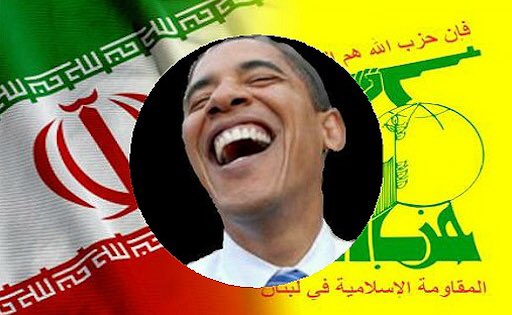How Obama’s Iran policy strengthened Hezbollah
Dr. Azeem Ibrahim/Al Arabiya/December 29/17
As the dust begins to settle on the mess that is Syria, certain facts have become evident. One of the most significant for the long term prospects of the Middle East is the fact that Hezbollah has emerged as one of the most powerful forces in the region.
This outcome was preventable. But political choices made by the Obama administration have made it real. The history of Hezbollah is long and bloodied. For most of that history, however, the ‘Party of Allah’ was little more than a normal militia with a penchant for terrorist tactics.
It did cast a long shadow over the region, but it did so in much the same way that Hamas does. They were both influential groups in relatively small but highly volatile conflicts which could have spill over effects into the wider region.
Lebanon, the home of Hezbollah, is a small place with peculiar politics, but the ongoing power struggle between the various opposing factions in the country is taken as a bellwether for the wider sectarian conflicts in the region.
And for good reason: most of these factions are sponsored by opposing powers in the ‘Concert of the Middle East’. Hezbollah was the local Iranian proxy. It largely served the geopolitical interests of Iran in Lebanon, and sometimes, used to project Iranian pressure over the border in Israel – with various degrees of success.
Lebanon is a small place with peculiar politics, but its power struggle is taken as a bellwether for the wider sectarian conflicts in the region
The Syrian conflict
In the Syrian conflict, Hezbollah started out in much the same way: as the local enforcer of Iranian interests, and, by extension, a member of the Shiite coalition fighting to prop up the regime of Assad. But over the course of the conflict, Hezbollah evolved into something much more serious.
They have established themselves as the most competent and successful military operator of all the Shi’a factions, better even than Assad’s armies.
Over the course of the conflict they have grown and expanded the spectrum of their military capacity, grown in battlefield experience, and gained specialist expertise. Continued Iranian support also translated into an expanded arsenal. And its history of success has attracted increasing numbers of recruits.
As the Syrian conflict seems to be drawing to a close, Hezbollah stands not as a militia, but more like a competent standing army. Second only to the Russian armed forces in the Syrian theatre. Except that the Russian forces will retire from the region at some point. Hezbollah will remain. And will continue to project power for decades to come.
Regional balance of power
The consequences of this for the regional balance of power are, as always, hard to anticipate. But given their geopolitical alignment, it should not take a genius to figure out that the outcomes will not be favorable to American interests. Rather, they will be very favourable for Iran.
This is something that should have been anticipated by the Oval Office. Hezbollah did not emerge as a military leader in the Syrian conflict out of nowhere. They have been building up over the years, and the trajectory of their rise should was evident all along.
When Obama failed to enforce his red line of chemical weapons in 2013, and effectively handed over Syria to Russia and Iran, the preconditions of the rise of Hezbollah were baked into that equation.
But the more egregious failure came in 2015. Obama and Iran finally agreed on the shape of a deal to stop Iran’s nuclear programme in exchange for sanctions relief. In many ways, this was a great achievement. And let this be clear: the world is a better place for the deal having been agreed.
What is more, Iran has stuck to the terms of the deal, and has shown that future initiatives like this to stop nuclear proliferation can be made to work even with long-time enemies.
Nuclear program
Yet Iran’s side of the bargain concerned only its nuclear program. Iran did not sign up to being best buddies with the US. They retain their own geopolitical interests, and they retain the unrestricted capacity to pursue those interests by any means they see fit. That the nuclear deal made no reference to Syria and Iran’s role in that conflict is its biggest weakness.
The US could and should have taken a stance on Iran’s involvement in Syria. The nuclear deal concerns Iran’s essential interests. Syria is pivotal for Tehran’s geopolitical play, but in 2015 was significantly less important than sanction relief.
There is every reason to believe that they would have agreed to restrain their involvement in Syria, which in turn would have seriously diminished Hezbollah. But the Obama administration chose to not even try to pursue this option. And American interests in the region will suffer for decades as a consequence.























